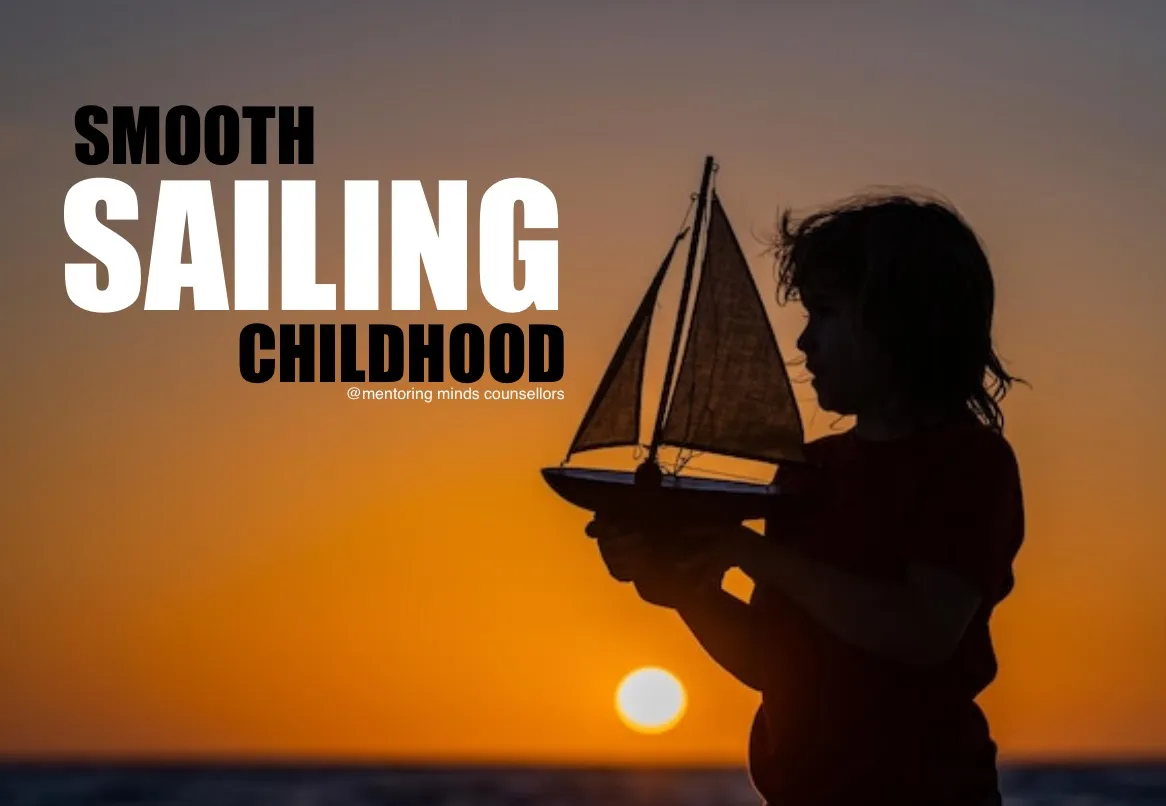Childhood is often called the foundation of life. It’s where the first bricks of personality, confidence, and resilience are laid. While no childhood is entirely free of bumps, a “smooth sailing” experience doesn’t mean the absence of challenges it means having the right support, guidance, and environment so that kids can learn to navigate life’s waves with confidence.
What Does a Smooth Sailing Childhood Look Like?
Imagine a child who feels safe at home, curious at school, and accepted among peers. Their mistakes are treated as learning opportunities, not failures. They’re encouraged to explore their interests, ask questions, and express emotions without fear of being judged. That’s what a psychologically healthy childhood feels like steady waters where the child feels anchored and free to explore.
What Makes Childhood Better for Kids?
1. Creating Emotional Safety
Children thrive when they know their emotions are respected. Instead of saying, “Don’t cry, it’s nothing,” acknowledging their feelings with, “I see you’re upset, let’s talk about it,” makes a huge difference. Emotional validation helps children grow into empathetic, secure adults.
2. Maintaining Consistent Routines
A steady routine provides children with predictability, which reduces anxiety. Simple habits like family meals, bedtime stories, or morning rituals create a sense of order and stability in their growing world.
3. The Positive Encouragement
Kids don’t need to be perfect; they need to feel encouraged. Praising effort instead of results“You worked really hard on that drawing” rather than “You’re the best artist”helps them build resilience and a healthy self-image.
4. Freedom with Boundaries
A smooth sailing childhood balances freedom and rules. Kids should feel free to explore, but also understand boundaries that keep them safe. For example, they can choose their clothes for the day, but bedtime remains non-negotiable. This balance nurtures independence and responsibility.
5. The Learnings
Play isn’t just fun it’s a child’s way of processing the world. Through games, role-playing, and imagination, children develop problem-solving skills, social connections, and creativity. Prioritizing playtime is prioritizing their mental growth.
6. Positive Role Models
Children learn more from what they see than what they’re told. Calm conflict resolution, kindness in everyday interactions, and a healthy lifestyle modeled by parents or caregivers become the invisible lessons kids carry for life.
7. The Space for Failure
A smooth childhood isn’t one without failure it’s one where failure isn’t feared. Teaching kids that setbacks are stepping stones builds courage and adaptability.
Final Thought
We at Mentoring Minds Counsellors understand that a smooth sailing psychological childhood doesn’t mean protecting kids from every storm. It means teaching them to steer, equipping them with resilience, and showing them they’ll always have a safe harbor to return to. With emotional safety, encouragement, and space to grow, kids can enjoy childhood as it’s meant to be curious, joyful, and full of possibilities.


Leave a Comment